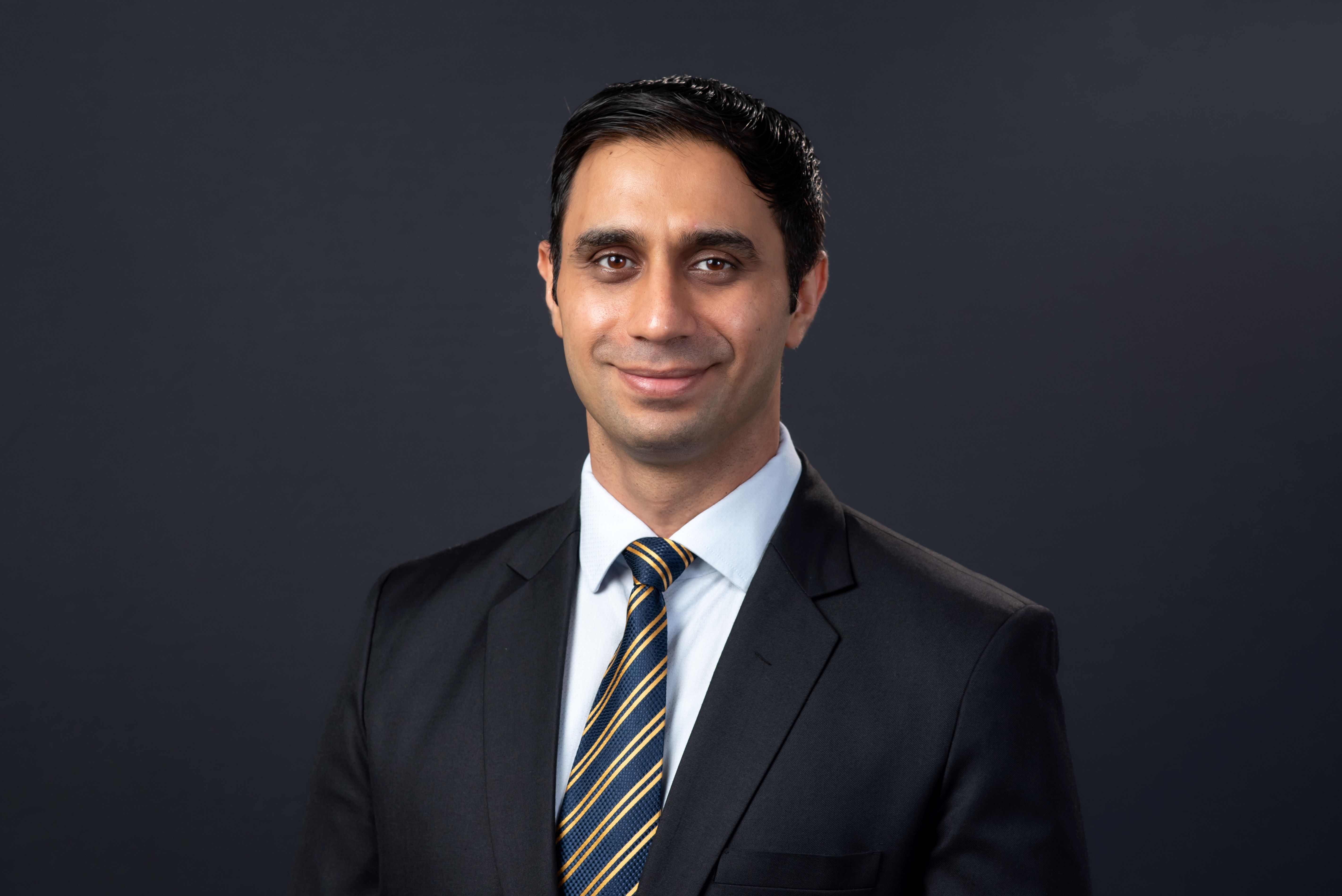Summary
Reflect on a personal journey of submitting oneself to Krishna. This blog uses a spiritual approach to discuss investment lessons. This blog provides in-depth analysis and practical advice. These funds are suitable for long-term investors looking to save on taxes. They offer a unique combination of tax savings and potential for high returns over time.
Over the years, I have boarded numerous flights with ease. However, when the seat belt sign wasn't turned off for longer than expected on one of my evening flights sometime in September 2019, it slowly started building up a sense of anxiety. An announcement from the cockpit a while later about a technical snag only added to the discomfort.
So we were now going for an emergency landing.
Wow, I thought to myself. Exactly what my normally anxious mind needed!
For the next twenty minutes, the cabin was gripped with an atmosphere of panic and fear. Fear of the unknown.
I believe most of my fellow passengers would have also been facing this situation for the first time in their lives.
For the passengers sitting on the over-wing exit rows, the flight attendant briefed us on the procedures to be followed in case of an evacuation. We tried by-hearting every single word. Out of panic and anxiety, one of the passengers even tried touching the lever that was supposed to be pulled only during evacuation. The cabin crew immediately screamed at him not to touch it as we were still mid-air, and she was only briefing the procedures.
Look before you leap
They say you see flashes of your life when in extreme panic. And it was happening to me now. Memories of moments spent with my child, spouse, and parents, flooded me one after another. I was thinking of God and reassuring myself that it couldn't be my last flight. No one dared to look out the window.
Then, suddenly, the landing gear touched the runway amidst our collective prayers, which I could hear from the back. There was absolute silence for the next few moments as the flight tried controlling its speed, over 200 human faces gripped with teeth clenched.
Finally, the aircraft came to a grinding halt. We had all landed safely without any injury. Thank God!
Now, I have experienced the safety demo before that flight umpteen times. Even the mandatory evacuation procedures, briefed to every passenger sitting on the emergency exit rows before every flight were not new to me. But I had hardly taken them with any seriousness, ever. I mean who does? Isn’t it the perfect time to practice the art of fake concentration- which we all learnt in school anyway?
Most of the time, during the safety demo, I have been busy attending calls before switching off my phone or checking that last-minute Whatsapp message. You know, bosses. I had always believed that the situation would never arise for me to ever follow any of what was spoken during the demos.
It always seemed mundane and a routine exercise where the cabin crew blabbered and I pretend to hear, with practiced understanding nods and hints of a smile.
The unseen impact
This brings me to an interesting analogy where I am often advised to invest in financial products which can earn me a return higher than the rate at which prices are going up for most of the goods and services my family and I consume. This can be as basic as the pulses and vegetables, the fuel my car burns, the school fee I pay for my child, the fee my tax consultant bills me every year, to something more complicated like purchasing a property, sibling’s marriage, or a family vacation.
However, like many of us, I don't exhibit the urgency to invest, as I can hardly visualize the actual impact of the rising cost or what they call inflation. As a listener, it sounds to me like a concept from economics, something good to ponder upon for an hour or so during an awareness session. So whatever I hear during those sessions on such concepts sound more or less superficial, like the safety demos before a flight, and hence, seldom brings me the sense of urgency to start investing. Or even to listen carefully.
And just like in an aircraft, by the time we realize the impact of what we didn’t do, it's already too late.
The art of calm
In the compounding formula that we learned in school…
Α= Ρ(1+r%)t
we often undermine the power of t (time) and hence, are left to focus only on the r (rate of return) and end up taking undesirable risks.
The event of the emergency landing has dawned on me another aspect of the situation. When most passengers were in a state of panic, what made those flight attendants and even the pilots retain such calmness?
Aren't they normal human beings holding similar emotions for their family? Aren't they afraid of dying?
What leads to this contrasting behavioral demonstration between the two sets of mortal beings dealing with the same situation simultaneously?
Someone rightly pointed out that they are trained enough to handle such situations. That is precisely the point, but it is not just the word trained.
Once, a flight attendant told me that ‘remain calm’ is not a chapter in their training module. Instead, calmness is simply the result of rigorous training on the procedures to be followed during an emergency. Over the years, training in mocked-up scenarios has automated the muscle memory within their brains to follow standard operating procedures when the situation demands. This is compounding of a very unusual kind- their interest (in training) pays interest (saving lives)!
These situations are unknown and not common for passengers, so their brains tend to react differently. It is not automated in their minds.
On one side, where the muscle memory of the flight attendants automates their activity towards the safety of the others, our muscle memory gets us to flashes of the past - of moments we spend with our family and friends- this is our muscle memory, isn’t it?
The untrained mind exposes our brain to unknown situations. An unknown situation leads the mind to a state of panic, and panic holds us back from performing unfamiliar but even simple tasks during challenging times, and hence we tend to commit mistakes.
This simple analogy can help us understand why many investors tend to commit mistakes in the financial decisions they take for themselves. On the surface, financial planning seems simple. A task that even a school student can execute.
During the initial years of my career, I always struggled to convince myself of the need for professional advice in matters of finance. After all, does it not look obvious? Buy on dips and sell on highs. I was so confident in my so-called research or on friends and relatives and their advice on stocks, mutual funds, insurance, crypto, real estate, chit funds, and whatnot. And to make things look even simpler, multiple websites threw me the list of best-performing schemes at the click of a button!

But I never made money for myself.
What I realize today is the fact that the portfolio that I made for myself over years was actually customized for my friend from whom I took the advice, and that made it a misfit for me. Additionally, even after knowing the rules of the game, which seemed so simple to understand, I exited at the wrong time and re-entered the wrong asset class at the wrong time. Like I said- an untrained mind leads to panic and to committing mistakes.
All this just to save some money- a small cost which is multiple times lesser than the loss I incurred during the process or the potential profit I could have made.
Choosing the right guide
Human minds tend to appreciate things that we can visualize.
Krishna gave Arjuna and Duryodhana the opportunity to choose between him and his entire army. Duryodhana thought he made a deal by getting the whole army as he could visualize the tangible aspect like most of us.
Arjuna, on the hand, decided to choose an unarmed Krishna as he could see the wit and wisdom, qualities that are not easy to figure out from the surface and hence we rarely appreciate.
On the same note, often, we tend to visualize only the element of cost although it's often tiny, think of it as ’value’, and in the process, miss the bigger picture - the professional touch that an advisor adds to our portfolio.
Our hyper calculative mind sometimes fails to judge the priorities.
After all, shouldn't the priority be wealth maximization and not only cost minimization?
Some decisions we take seem trivial, as we feel we can always course-correct in case we go wrong. We don't want to compromise while deciding on medical facilities for an ailing family member, but knowingly or unknowingly, we often experiment with our financials. In case of medical emergencies, we don't want to go wrong even on the first attempt, but in matters of finance, though we may not accept, we don’t mind going wrong. However, with every mistake we commit, we start losing on the most critical factor of compounding - t (time).
Few decisions in life, however petty they may appear, can be life-changing, and choosing a professional advisor to my mind is one such call.
I may be a voracious reader, and with my strong social connections and availability of expert minds around me, can be considered well versed in financial matters. But knowing something and executing that idea are two entirely different episodes.
Going back to the cabin crew: The main job of a flight attendant is passenger safety and comfort. In other words, part of it can also be understood as risk-minimization. Similarly, the job of a professional advisor is not to generate the highest return but to manage risk and guide us through when our mind gets into a state of panic.
For those who know Duryodhana- It's not that he didn't have a guide. Where Arjuna had only Krishna, Duryodhana had many guides in the form of Bhishma, Dronacharya, Vidura or even his mother to guide him during different phases of his life. Still, he didn’t give much attention to any, possibly because of overconfidence.
During the Kurukshetra war, the Kauravas were stronger in comparison to the Pandavas. Karna was no less skillful than Arjuna, and Duryodhana was equally matched with Bhima. But Arjuna listened to the advice from Krishna at every stage of the war.
So if we aim to be Arjuna and strike our investment goals, it may require a Krishna to guide us and take care of our emotions at various stages of this journey.
In Conclusion
The sad part is that overconfident people don’t even know they are overconfident. So then, how does one deal with this trait? By testing yourself. By being honest to yourself. By listening to criticism. By listening to trustworthy experts.
I am not saying that the professionals will be able to nullify all the undesirables entirely all the time, but they are trained to help you plan for, and reduce the impact of adversity. And mentor you when things seem to not be going anywhere.
So the next time you’re flying, try to pay attention to what that flight attendant is telling you. It might just help you save someone, or yourself, in a time of crisis which may seem unfathomable. Start by simply listening better.
I’ve chosen my path and decided to listen to my expert too. In the journey of wealth creation, I choose to submit myself to My Krishna.
Industry insights you wouldn't want to miss out on.
Written by
Disclaimer
This note is for information purposes only. In this material DSP Asset Managers Pvt Ltd (the AMC) has used information that is publicly available and is believed to be from reliable sources. While utmost care has been exercised, the author or the AMC does not warrant the completeness or accuracy of the information and disclaims all liabilities, losses and damages arising out of the use of this information. Readers, before acting on any information herein should make their own investigation & seek appropriate professional advice. Any sector(s)/ stock(s)/ issuer(s) mentioned do not constitute any recommendation and the AMC may or may not have any future position in these. All opinions/ figures/ charts/ graphs are as on date of publishing (or as at mentioned date) and are subject to change without notice. Any logos used may be trademarks™ or registered® trademarks of their respective holders, our usage does not imply any affiliation with or endorsement by them.
Past performance may or may not be sustained in the future and should not be used as a basis for comparison with other investments.
Mutual fund investments are subject to market risks, read all scheme related documents carefully.
Other Blogs
Sort by






















Comments
Total 3
Nilupam
24-09-2024
I like it, well articulated.
Abhijit Guha
24-09-2024
Really an eye opener for an investor. Investment dynamics very well explained in simple ways. Keep it up.
NIKHIL girme
24-09-2024
Fantastic sir.. loved it..
Write a comment